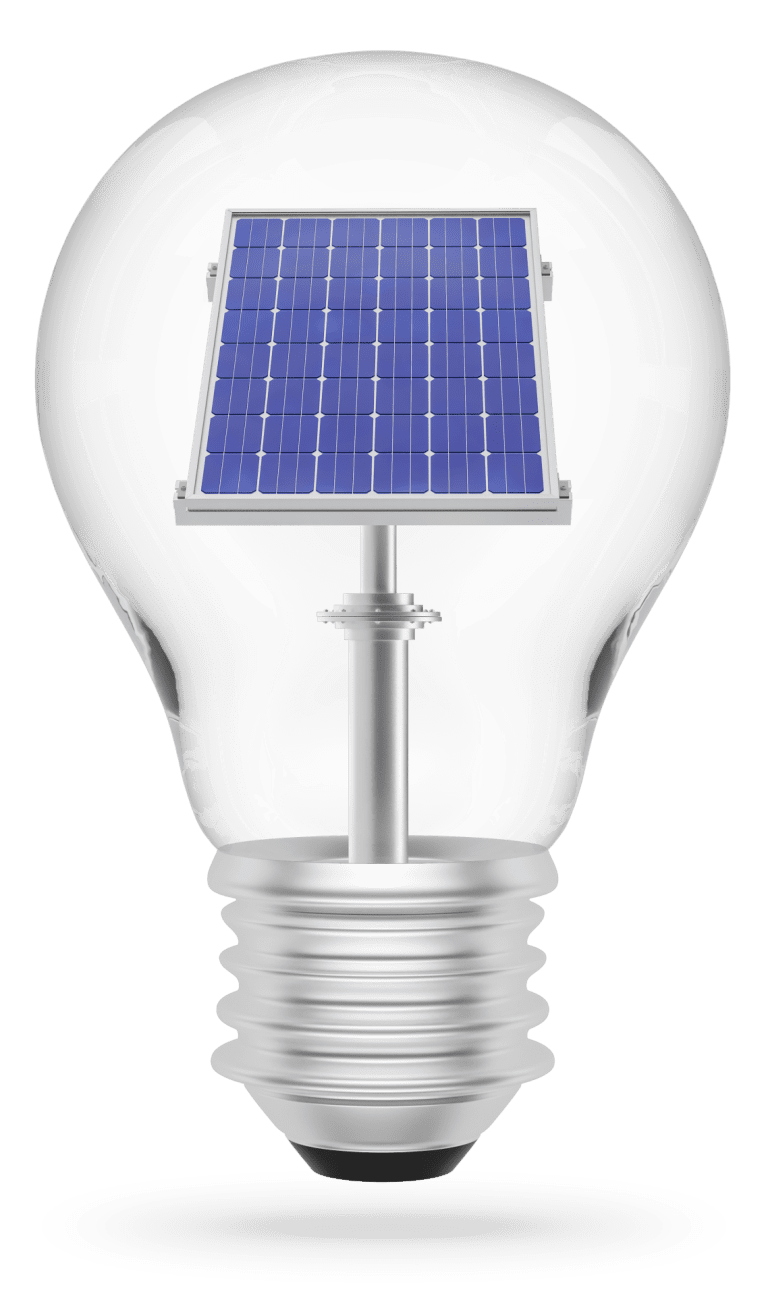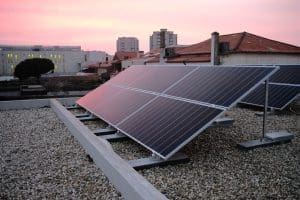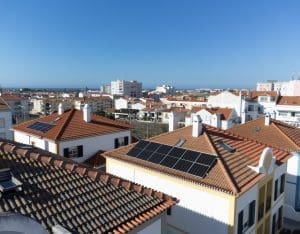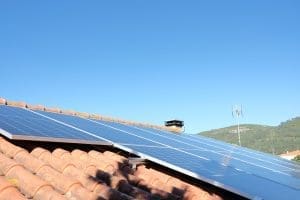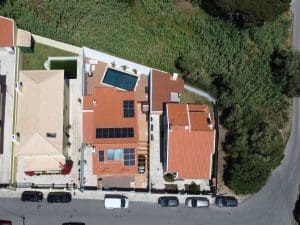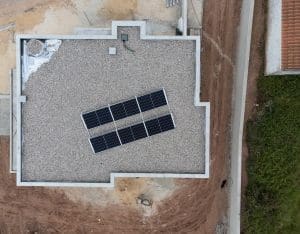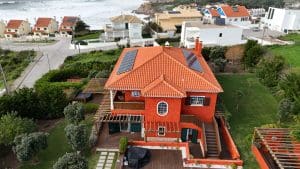Paineis Solares Fotovoltaicos
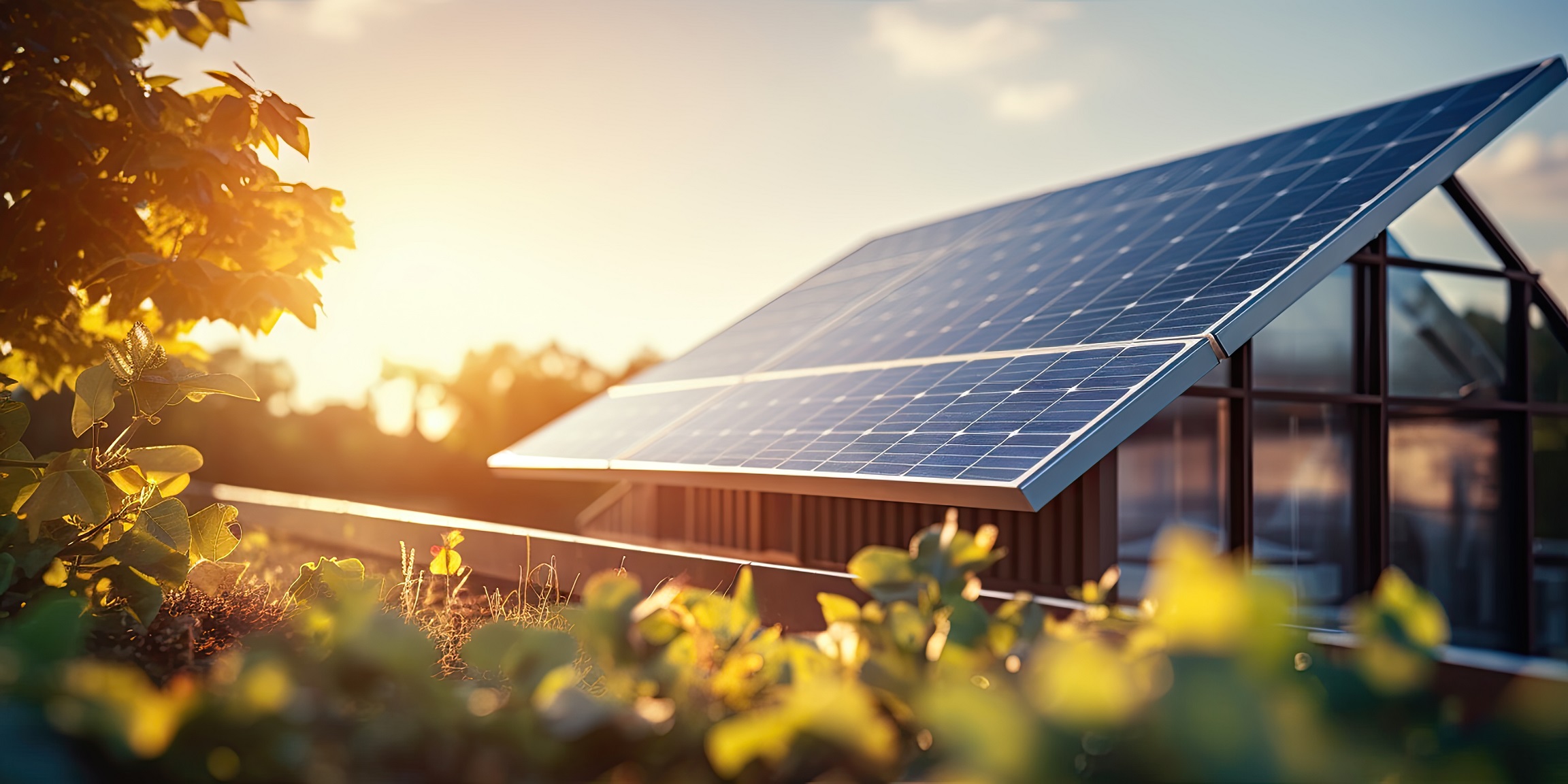
Paineis Solares Fotovoltaicos
Installation of Solar Panels
Energy Independence
and Sustainability Worry-Free
Solutions to suit
your needs
There are several types of solar panels, with different characteristics and potentials
Polycrystalline Silicon
Made from molten silicon and molded into multiple crystals, resulting in a bluish appearance.
– Slightly lower efficiency compared to monocrystalline panels, but they are cheaper to produce.
– Popular choice for residential and commercial installations due to their good performance and cost-effectiveness.
Monocrystalline Silicon
– Produced with silicon fused into a single crystal, resulting in a uniformly black appearance.
– Slightly higher efficiency compared to polycrystalline panels, making them an ideal choice for limited spaces.
– More expensive to produce, but can offer greater energy production in areas with less space available.
Thin Film
– Made from thin semiconductor materials such as cadmium telluride (CdTe), amorphous silicon (a-Si) or copper telluride (CIGS).
– Lighter and more flexible than silicon panels, making them ideal for applications on curved roofs or uneven surfaces.
– Lower efficiency compared to silicon panels, but can be a viable option in certain situations due to their versatility and lower cost.
Bifacial
– Capable of capturing sunlight from both sides of the panel, thus increasing energy production.
– They can be monocrystalline or polycrystalline and are mounted on supports that allow sunlight to pass through the panel.
– They offer an increase in efficiency compared to traditional panels, especially in areas with reflective surfaces such as snow or white roofs.
Worry-free
Our highly experienced and qualified technicians recommend the most suitable solution, install it professionally, take care of all the paperwork and provide all the instructions for use and maintenance.
Installation with or without batteries
Rely on our experience to size the most suitable system.


Specialists in
Sustainable Energy
✔️ Qualified technical study
✔️ Professional installation
✔️ Licensed company
✔️ Easy operation and maintenance
✔️ Technical assistance
✔️ 25 years of production
✔️ Tax Incentives
✔️ Tailored financing
✔️ Increasing property value
✔️ Independence and sustainability
Savings Simulator
Simulate here how much money you can save,
how soon you will see a return on your investment
and how much CO2 you will avoid.
Testimonials
I have Solar FV to thank for supporting me in researching and buying material that is new/unknown to many people, and for not giving up or trying to force something else halfway through.
I ended up with a fantastic solution, which includes recent panels with very good performance, a very interesting inverter, (...) with a monitoring system that includes a meter.
Thanks to Solar FV. They have been incredible partners in this adventure. I wish them every success! Note the use of the word partners - it wasn't random"

Based on my wishes I promtly received two detailed offers for solar systems. A basic system and another with better possibilities to add solar panels and batteries. (...)
I have a background in airplane maintenance and my son is the manager of a 30 man strong technical solar installation department in The Netherlands, looking at my installation on the roof and inside, top quality work have been done.(...)
Thru the whole process I have received prompt answers and appointments have been solid.Right a the beginning the system twice had a software problem, which was fixed remotely, as promised, at the end of the day. As you can tell I believe in a detailed feed-back, let it be a positive or a negative feedback!!
It's your turn to take the first step
towards a more sustainable and economical futureAchieve energy freedom and sustainability
Frequently Asked Questions
Residential solar systems capture sunlight by means of photovoltaic panels installed on the roof or ground of the property. The solar energy is converted into electricity that can be used to power the home’s electrical appliances.
The benefits include lower energy bills, energy independence, a reduced carbon footprint and increased property value. In addition, many governments offer tax incentives and subsidies for residential solar installations.
The cost of installing a residential solar system can vary depending on the size of the system, the type of solar panels and the characteristics of the property. We recommend scheduling a free meeting or a personalized quote.
Residential solar systems are designed to last between 25 and 30 years or more, with proper maintenance. Solar panels are generally guaranteed to produce energy for at least 25 years.
Residential electric chargers are designed for home use and have a lower power rating, while commercial electric chargers are more powerful and suitable for public places, businesses and parking lots.
The installation time of an electric charging station can vary depending on the type of charger and the characteristics of the installation. Generally, installation can take from a few days to a few weeks.
Residential solar systems require little maintenance other than regular cleaning of the solar panels and periodic inspections by qualified technicians. Most systems come with maintenance guarantees to ensure long-term performance.
Yes, many residential solar systems are designed to be connected to the local electricity grid, allowing homeowners to sell excess energy back to the grid through feed-in tariffs.
Many families and companies have already started saving and becoming energy free, independent and sustainable
